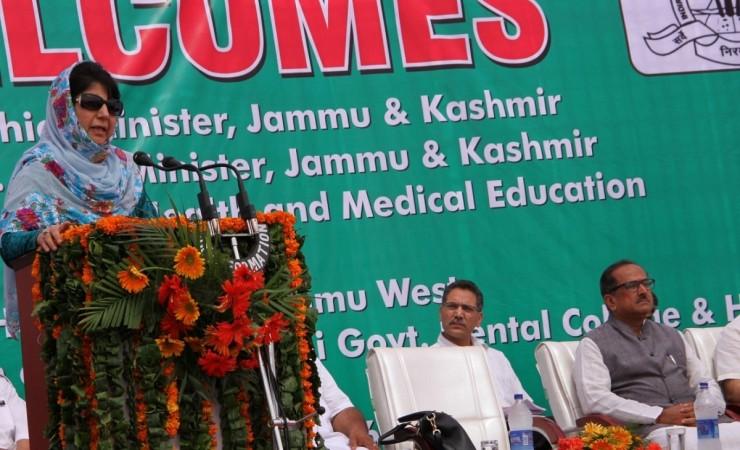
The state of Jammu and Kashmir has fired its standing counsel in the Supreme Court after he refused to file a review petition to dispute the apex court's view that the state "has no vestige of sovereignty outside the Constitution of India."
Also read: Kashmiri soldier walks 50 km with mother's body in 6-feet snow after authorities deny help
The lawyer, Sunil Fernandes, who was the chief standing counsel since September 2015 was directed to resign immediately on Monday. He reportedly was not given a reason behind it. He had earlier been the state's standing counsel from May 2010 to September 2013. This was his second time as the state's counsel.
State government's Law Secretary Abdul Majid Bhat had reportedly said that Fernandes resigned on his own. However, when told that Fernandes was asked to resign he didn't comment. J&K Law Minister Abdul Haq Khan had held a meeting with all the state's lawyers on Sunday in Delhi.
The Supreme Court on December 16 had rebuffed the state high court that had asserted J&K as sovereign. In its judgement, the apex court bench of Justices Kurian Joseph and Rohinton F Nariman had held: "It is clear that the state of Jammu & Kashmir has no vestige of sovereignty outside the Constitution of India and its own Constitution, which is subordinate to the Constitution of India. they (residents of state) are governed first by the Constitution of India and also by the Constitution of Jammu & Kashmir."
Fernandes, who was under pressure to file a review petition on the top court's view, had said there was no valid legal grounds for filing it. He had also demanded specific instructions in writing for it. He also reportedly said that his submissions in the court had been scrutinised by the state's law department and there were no instructions for him to argue about the sovereignty of the state as J&K is an integral part of India.
The Jammu and Kashmir government is made in alliance with the BJP, which is in power in the Centre. The PDP-BJP alliance has been fraught with tension over rising conflict in the state. Many groups in the state demand a separate state from India as well.
After the Supreme Court judgement, the state government had been attacked by Opposition parties for erosion of article 370 that gave the state a special status.
"It is necessary to reiterate that Section 3 of the Constitution of Jammu & Kashmir, which was framed by a Constituent Assembly elected on the basis of universal adult franchise, makes a ringing declaration that the State of Jammu & Kashmir is and shall be an integral part of the Union of India. And this provision is beyond the pale of amendment," the Supreme Court bench had said.
The judgement also clarified that J&K residents are "first and foremost" Indian citizens. "It is therefore wholly incorrect to describe it as being sovereign in the sense of its residents constituting a separate and distinct class in themselves. The residents of Jammu & Kashmir, we need to remind the High Court, are first and foremost citizens of India. permanent residents of the state of J&K are citizens of India, and that there is no dual citizenship as is contemplated by some other federal Constitutions in other parts of the world," it said.

















